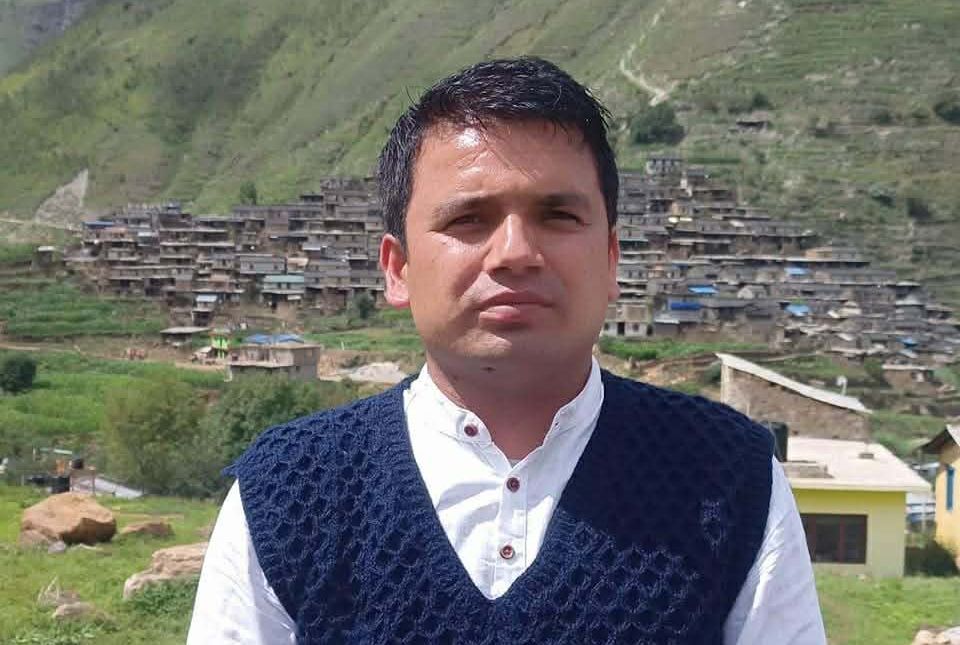
Gone were the days when hippies romanticized Nepal as a cannabis paradise. Drawn by the Himalayan serenity, warm hospitality, low cost of living—and above all, the easy availability of marijuana—Kathmandu became a fascinating escape.
Until 1979 A.D., cannabis was not illegal in Nepal. It was cultivated openly and grew wild in the hills and villages. Today, marijuana lies at the heart of a national debate over whether Nepal should legalize it for medicinal use.
Even as lawmakers debate legalization in Parliament, police forces have stepped up their crackdown. Cannabis cultivation, sale, and possession remain punishable offences. In districts such as Dhading and Nuwakot, police frequently conduct “search and destroy” operations to uproot wild cannabis plants from the hillsides.
Despite these efforts, cannabis which is also long associated with religious rituals in Nepal, is still grown covertly in some areas and smuggled across the border into India.
But it’s not just local cannabis making headlines anymore.
The Thai connection

In recent months, the flow of cannabis into Nepal has taken an unexpected route – by air from Thailand.
“Many recent seizures at Tribhuvan International Airport have involved passengers arriving from Thailand,” said Sudarshan Koirala, Chief of the Narcotics Control Bureau (NCB) in Kathmandu. “Several are under investigation.”
The airport has witnessed an uptick in such cases. On April 4, Thai national Jiranun Rungrueang, 24, arrived at Kathmandu airport on Cathay Pacific flight CX603. After clearing immigration, she proceeded with her pink suitcase—until customs officers asked her to scan it.
Looking uneasy, she hesitated. When scanned, the suitcase revealed suspicious shapes. Upon inspection, authorities found ten plastic-wrapped packets of cannabis—8.5 kilograms in total.
“This kind of smuggling from Thailand has increased since the country legalized cannabis,” said Somendra Singh Rathour, Chief of Airport Security Police Office. “But our focus is limited, we hand over suspects to the NCB without conducting detailed investigations ourselves.”
This lack of deep investigation, say critics, is a missed opportunity.
Jiranun told police she previously worked for J&T Express, an online delivery company based in Bangkok. Two months ago, a woman named Sasikan had offered her a chance to deliver a parcel abroad—for 15,000 Thai Baht (around NPR 61,000). The trip, including hotel and airfare, would be paid for.
Before her trip, she obtained a passport for the first time. At Bangkok’s Suvarnabhumi Airport, a man gave her the suitcase. She was told that someone would collect it from a hotel in Kathmandu. But she was arrested at the airport before she could check in.
Unlike past busts, police did not track down her accomplice in Kathmandu. Investigators leaked her arrest to the press within hours.
“Given the investment, airfare, hotel, and payment, it seems like a larger network is involved,” one investigator said.
But the NCB appears not to have pursued the case in depth.
“International drug networks can only be dismantled with sustained investigations and coordination with foreign agencies,” said Hemant Malla Thakuri, former Chief of the NCB and a veteran of drug enforcement operations.
Destination India

“This Thai cannabis is three to four times stronger than what is found in Nepal,” said Malla, who calls it a type of “hybrid cannabis.”
“What grows in Nepal is either cultivated in fields or grows wild in forests,” he added. “But this is specially processed, indoor-grown marijuana—stronger and more potent.”
Cannabis does not stop in Nepal. Its final destination, according to law enforcement officials, is across the southern border in India.
“I have seen this type of hybrid cannabis go straight from Kathmandu into Indian cities like Delhi, Mumbai, Punjab, Pune, and Goa,” Malla said.
On March 27, two Indian nationals, Anwar Mohammad and Syed Raziyabano, were arrested at Kathmandu airport. Their suitcases contained 1.8 kg and 1.6 kg of cannabis respectively.
They told police they had been approached by a man named Tony in Mumbai, who offered them money to bring back designer bags from Thailand via Nepal. The offer included hotel and travel expenses and Rs 15,000 each in return.
They flew from Mumbai to Bangkok and returned via Kathmandu, planning to cross into India by road. But they were caught at the airport before making their move.
Kathmandu: A new transit hub?
Central police spokesperson Ramesh Thapa confirmed that from mid-April 2024 to mid-April 2025, 114.8 kilograms of cannabis were seized at the airport. In contrast, just 540 grams were seized the previous year, and a mere 36 grams in 2022.
“Most of the cannabis seized recently was carried by passengers arriving from Thailand,” Thapa said.
Experts warn that if Nepal becomes a regular transit point, the consequences could be severe. First, domestic consumption may rise-as seen in India’s Punjab, once merely a transit hub but now grappling with a local addiction crisis.
Second, the surge of drug trafficking could give birth to organized crime rings that might exploit other criminal avenues, including corruption.
Third, an uptick in cannabis trafficking might coincide with increases in other illicit trades-such as gold smuggling, hawala transactions, or weapons dealing.
“There have already been instances of traffickers using gold as payment for drugs,” said a senior police officer. “That’s why we need to take this seriously.”
Malla, the former NCB Chief, agrees: “Nepal must treat this not just as isolated smuggling incidents, but as part of a broader, deeper threat-and investigate accordingly.”





















